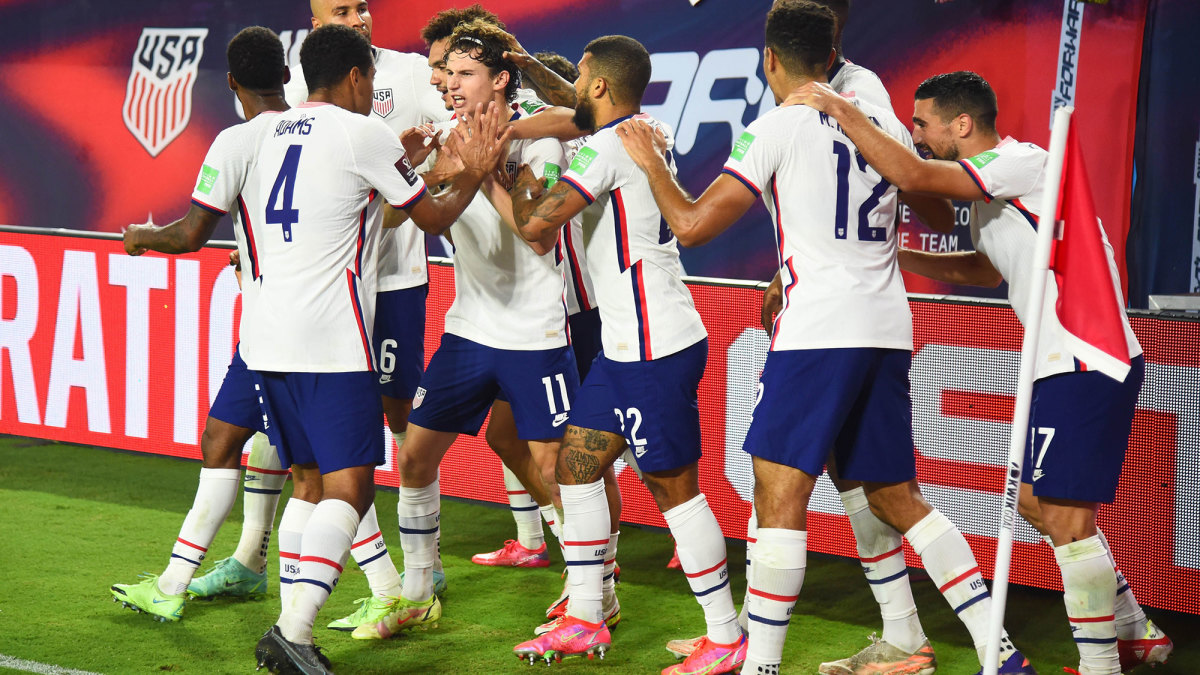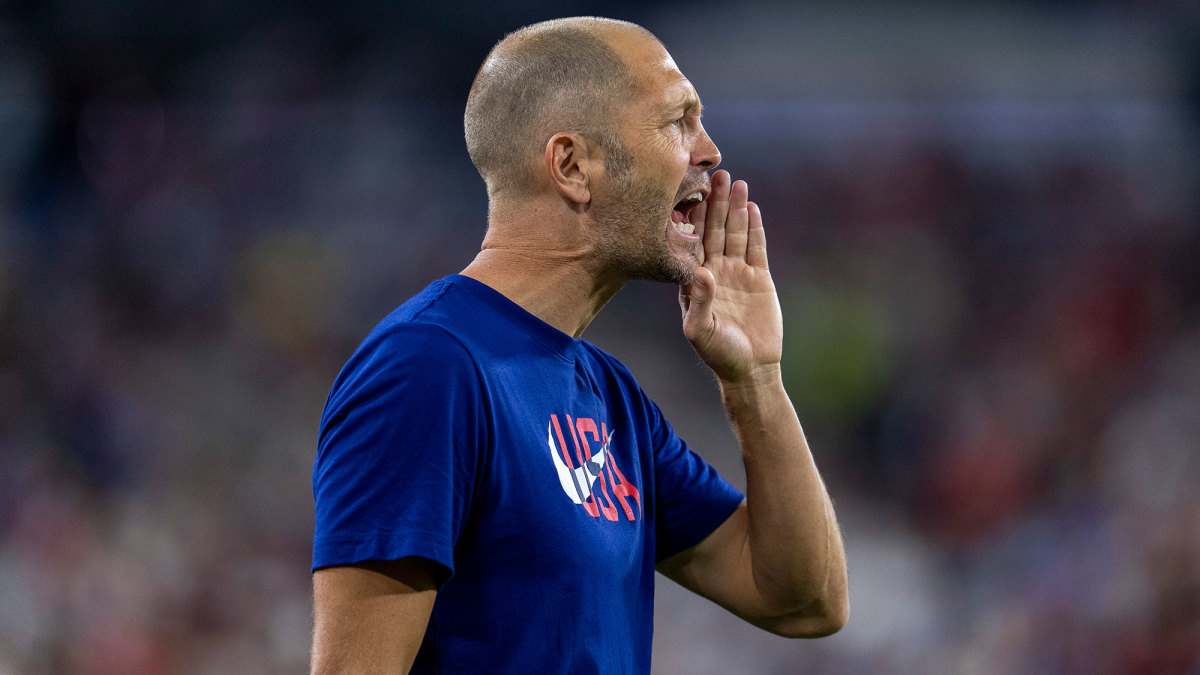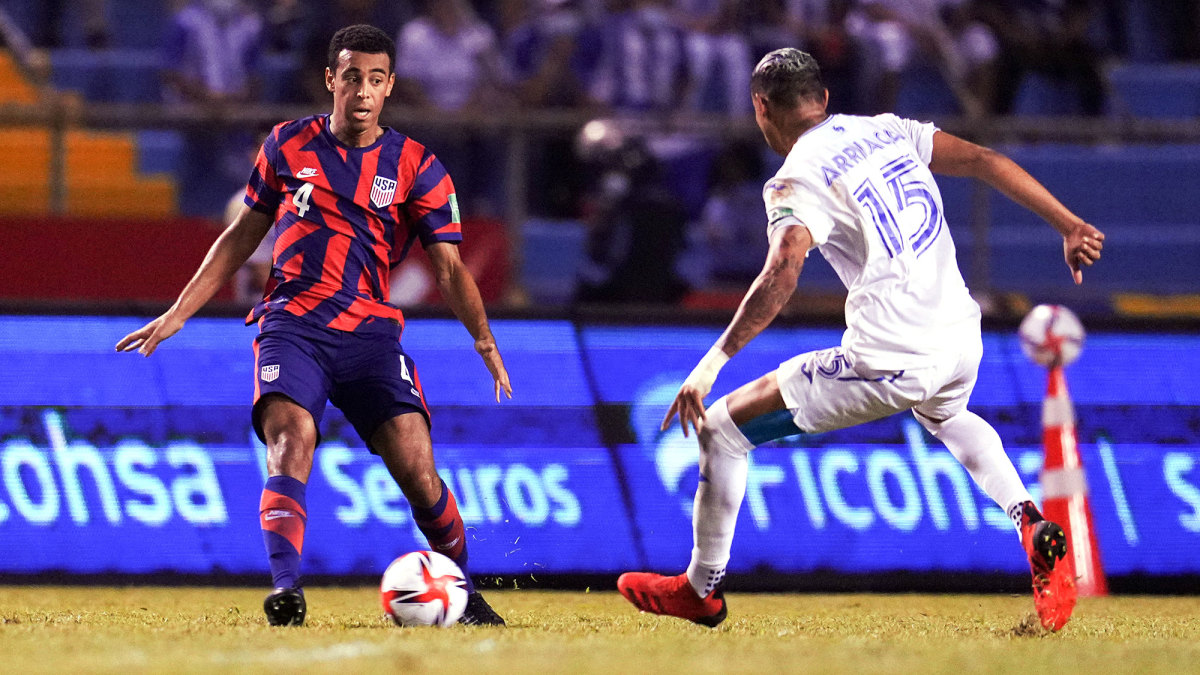Refocused USMNT Light on Expectation Claims as World Cup Qualifying Resumes

AUSTIN, Texas — There’s been next to no discussion this week concerning point totals or targets, big-picture goals or evolution. Nobody’s talking about making statements to the rest of Concacaf, reflecting on Couva or envisioning Qatar.
The U.S. men’s national team tried that a month ago. It didn’t feel right and it didn’t really pay off. So now it’s about Jamaica, and only Jamaica, as the second World Cup qualifying window opens here in the Texas capital.
“The whole team is really just focused in on this match,” defender Miles Robinson said Wednesday, the day before the Americans (1-0-2) meet the Reggae Boyz (0-2-1) at Austin FC’s Q2 Stadium in the first of three qualifiers in seven days.
“It’s just the mentality of the guys out there,” he added. “I think all of us are solely focused on this game tomorrow. And we understand the intensity and the grit that it’s going to to take to get a result that we want.”
U.S. coach Gregg Berhalter has been adamant in the defense and support of his very young squad. Sixteen players made their qualifying debuts last month as the Americans tied El Salvador and Canada before rebounding with a win in Honduras. Among the 87 countries for which the U.S. Soccer Federation has data, Berhalter’s average starting lineup during the September FIFA window was the youngest in the world (23 years, 333 days). The 26 men called in for the upcoming matches against Jamaica, Panama and Costa Rica also average less than 24 years of age.

“I don’t think it’s talked about enough how young this team is and how going through [qualifying] for the first time is challenging,” Berhalter said here Wednesday. “We’re navigating through it and guys are learning on the fly.”
But Berhalter also wasn’t shy about acknowledging that the attitude, approach and level of concentration as camp opened last month in Nashville wasn’t 100% right. Navigating all that is part of the learning curve as well.
“I don’t think the players and the staff were focused on the task at hand right from the get-go. I think it took us too long to get focused,” he told U.S. Soccer last month.
There was talk of a nine-point week, which necessarily would’ve included two road wins. Since Concacaf launched the Hexagonal (now the Octagonal) during the 1998 cycle, the U.S. team of 2001-02 is the only one in the region to kick off that final round with three straight victories (and those games were played across two months, not a week). A squad of 16 debutantes pulling that off would’ve been a small miracle.
And there were hints about cementing the U.S.’s new-found status as kings of Concacaf and repositioning American soccer on the world stage. The brazen confidence of youth, combined with the Gold Cup and Nations League titles won over the summer, left this young group feeling invincible, or at least empowered. So why shy away? You play to win the game, after all. And all those games were winnable.
But implied and inherent in the nine-point, new-era talk was a lack of exacting, specific dedication to the next game and the next play. That outlook also failed to truly account for how many things can shape a single qualifying result or window, from positive COVID-19 tests and injuries to travel and disciplinary issues. Berhalter felt it dulled the U.S. just enough. And it essentially took the Americans five halves of soccer to get going last month.
“We did a lot of talking before the first game about it being a nine-point week and it was really important, and I think that’s great to have high expectation,” the manager said following the 4-1 sigh of relief in Honduras. “Everyone wants to win games, right? But the other side of it is, it’s just talk. And then you have to go out and do it, and it’s very difficult to do. And I think we needed to give these guys that experience. They needed to see what these games are like, because they’re completely different games … they’re wars.”
Berhalter said that he and his staff largely left players alone following the summer tournaments as many returned to their clubs to kick off the European season—some with new addresses or new coaches. This time, however, there was considerably more communication.

“Part of our job before camp was to talk to each and every player prior to arriving into camp and just say to them, ‘Listen, here are the expectations for this camp. This is exactly what it’s going to look like. Here’s what we learned from last window. Here’s what we know about the games.’ And then hear from them, how they processed through the last round. For us, it’s all about learning,” Berhalter explained.
“Coming into [September] camp, maybe we were just a little bit naive and we didn’t really know what to expect,” midfielder Tyler Adams said this week. “That's why we had to use those first three games as a learning process. … You can tell [now] that the group is focused. We know what our ambitions are of course. But again, it’s just that game-by-game mentality now.”
Planning ahead or setting big-picture goals feels fruitless anyway, especially when the landscape changes so quickly. For example, the U.S. endured some unexpected technical and emotional adversity last month when Weston McKennie was sent home before the second match for a breach of team rules. McKennie is back in the fold and will start against Jamaica, Berhalter said—a deference to the youth and learning curve that define this team.
But stuff is going to happen this week, too, and trying to absorb all in could overwhelm. It’s already started. Midfielder Yunus Musah, who missed last month’s qualifiers after just having returned from injury but whose robust presence and dribbling ability could be key to Berhalter’s desire to play faster and more direct, trained separately from the rest of the group Wednesday because of an inconclusive COVID-19 test. U.S. Soccer received a negative result on a subsequent PCR test Wednesday night, which cleared him to rejoin team activities. Coronavirus protocols in Panama could impact the Sunday availability of two players based in England—Zack Steffen and Antonee Robinson—and an unidentified teammate who’s still not fully vaccinated. Two veteran central defenders, John Brooks and Tim Ream, already have pulled out, and Walker Zimmerman was brought in as a replacement. And, most significantly, Christian Pulisic and Gio Reyna—arguably the national team’s two most skillful attacking players—are injured and unavailable.
It’s a lot to take in and a lot to plan for. And so it’s probably easier to try to win one game three times than three games at once. It make more sense to just to accumulate points day by day, than to fantasize about finishing first or playing in Qatar. There has been no point target set this week—not even an invocation of the old “win at home, draw on the road” standby. The U.S. is playing Jamaica on Wednesday. And that’s all they’re talking about.
In an ironic way, missing Pulisic and Reyna might help steer the U.S. back toward its fundamental foundation. Berhalter said Wednesday that when his team plays well, it’s about the collective.
“It’s based on guys running together, working together, creating space for each other and when we’re at our best, it’s when we’re playing collective soccer,” he said.
But the collective soccer wasn’t great during long stretches against El Salvador and Canada. The passing combinations and off-the-ball runs weren’t there, and the real-time recognition of how to solve problems posed by the opposition wasn’t there. Now, when you’re missing the two guys who might knock a defense off balance on their own, the reliance on the collective must be constant and resolute. The mandate from Berhalter this month is clear—play quick, direct and together, and play behind the defense.

"We’re losing talent for sure without Christian and Gio. Those guys play in the top teams in the world and they’re capable of unbalancing a team. We’re losing a lot of quality guys that dribble and find that final pass,” midfielder Cristian Roldan said.
“However, on the flip side, now we have more runners. We have guys that are playing off the ball—less ball to feet and more into space. So we can really stretch guys in behind with the players that we have here,” he added.
That attention to detail also must include a healthy respect for Jamaica. The Reggae Boyz are in last place, but it’s early. And they may be missing big names like Michail Antonio (West Ham United) and Leon Bailey (Aston Villa). But neither of those Premier League stars were at the Estadio Azteca last month, when Jamaica “pushed Mexico to the absolute limit,” according to Berhalter, before succumbing in the 89th minute. And there are plenty of holdovers from the squad that gave the U.S. all it could handle in a one-goal Gold Cup quarterfinal in July.
“In the end, we have to have a complete game in order to win and do all the little things to help our team to be successful,” Roldan said.
There’s enough there to keep this team occupied until then.
“Last camp was obviously a great experience for us all. A lot of us, our first taste of what World Cup qualifying was going to be like,” Adams said. “The most important thing coming into this camp now is to take each and every game, game by game. Not focus on saying ‘O.K., let’s get nine points.’ I mean, I remember even myself, I previously said ‘Let’s get nine points in the window.’ Let’s focus on each game and what we need to do in order to win each game. And then I think that’s going to set us up for the best success.”
Berhalter said Wednesday that the lesson and message appears to have sunk in.
“What I have noticed from the guys is a different level of focus. Not getting ahead of ourselves, focusing on one game at a time and going from there,” he said.
More Soccer Coverage:
